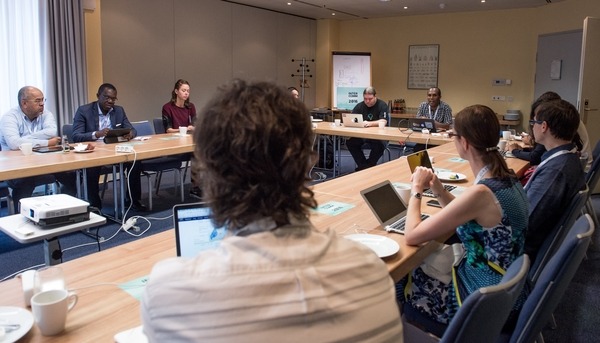The Internet Engineering Task Force held its 96th meeting in Berlin from July 17- 22 2016. More than 1350 volunteers from around the world gathered to discuss the status of their works in 42 active working groups. There were also 8 BOF (Birds of a Feather) meetings to discuss the need to start new working groups.
I had the chance to follow some of the fascinating discussions on future standards that will determine the Internet we will have a few years from now. I was in particular interested on the works that concerns Internet of Things (IoT) that I will try to focus in my blog today. The reason of my interest is very simple. Internet of Things might be an area from where will come some of the innovations that will change our lives in the coming years and decades. It might also be a major sector of the Internet industry.

According to CISCO, the number of “things” connected via the Internet have surpassed the global population in 2008 and are estimated to reach 50 Billion in 2020. A thing can be anything such as a sensor, an actuator or some chip in homes, vehicles, animals or even on people.
The economic value of IoT is expected to grow six folds from 2013 to 2020 to reach 1.2 trillion USD. This is a major revolution in the making that Africa needs to be benefiting from.
But are Africans participating in this revolution? Unfortunately, if we consider the working groups at the IETF such as HomeNet that works on standards for networks we will use in the automation of our homes, or the activities around Intelligent Transportation Systems, Africans’ participation is almost nil.
The consequences are of course that by not participating, Africans are forfeiting their opportunities in this new sector. This should not happen! In the past, we didn’t participate in many of the revolutions that were brought about by the Internet since we couldn’t. When e-commerce boomed in the 1990s and 2000s, Africa could not benefit from that boom since many African countries were barely connected to the Internet. In those days, Internet penetration didn’t reach 5% in the majority of the countries and broadband was inexistent. Today, African countries have managed to bridge considerably their connectivity gaps with the rest of the world. A third of Africans are accessing the Internet and many more could access it if they would be willing to.

Fortunately, the race for Internet of Things has just begun and with good strategy, Africans can join the race and maybe excel at it. In particular, African universities should teach about Internet of Things so that we create a critical mass of people who can meaningfully contribute in the evolution of the sector. African researchers should work with other researchers from the rest of the world to contribute to define the technology and also its applications. African ICT companies need to work on IOT applications that can change the lives of Africans but also that of people around the world.
The Internet Society will play its role in promoting this sector in Africa through various workshops and seminars. It will also encourage and help Africans to join IETF working groups focusing on IOT. Finally, I would like to invite other organizations and people to join the Internet Society so that we work together to insure that Africa becomes a major player in this new exciting sector.

